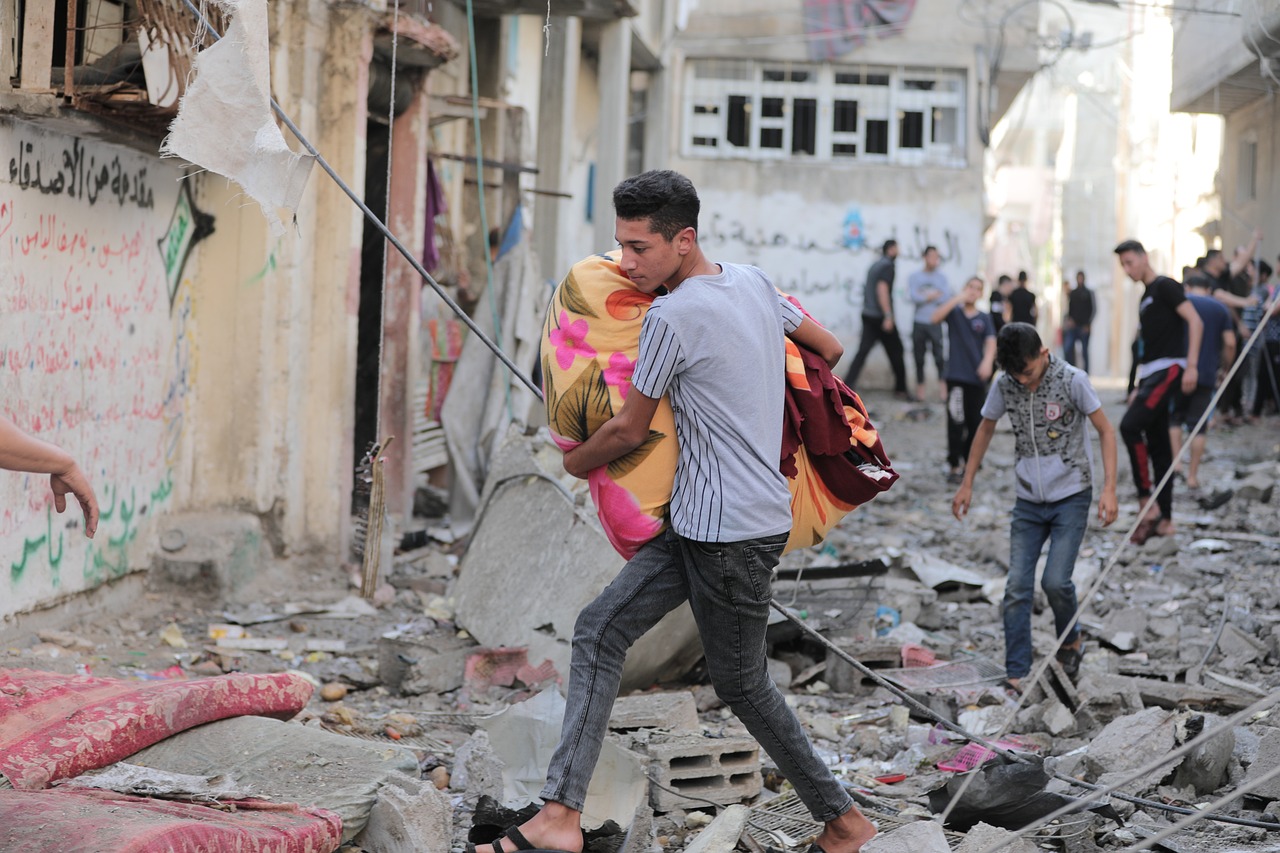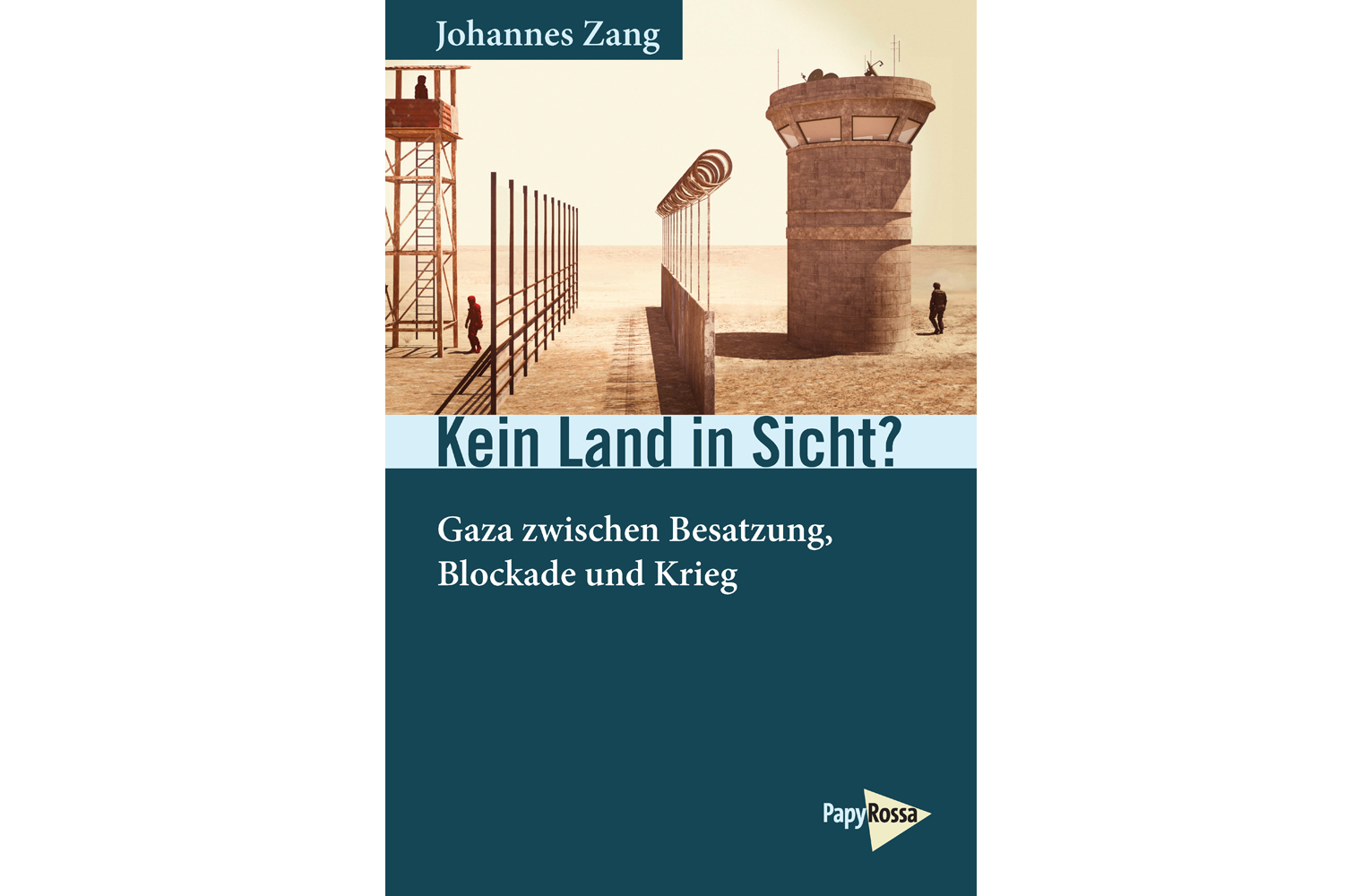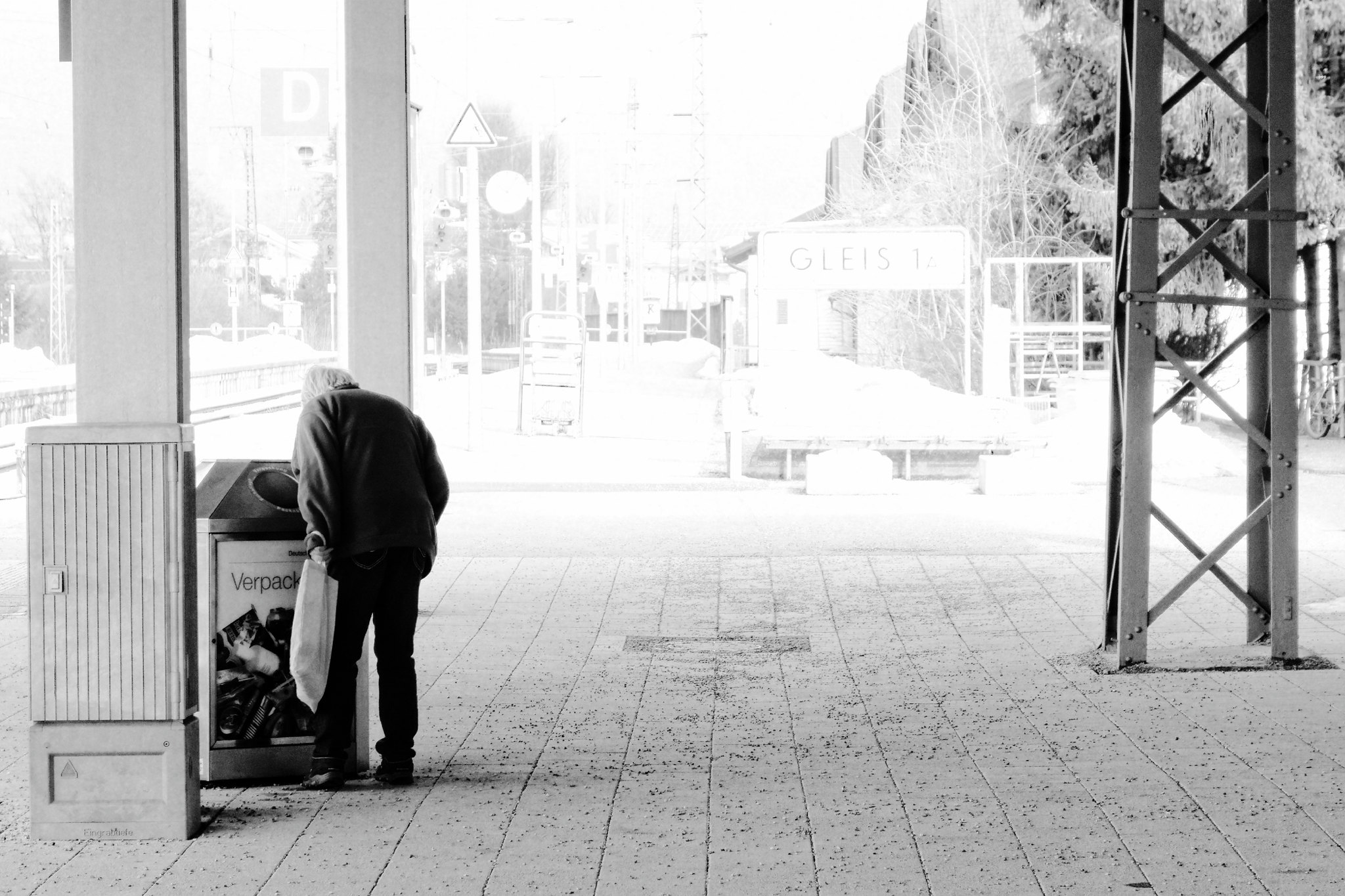Pro-Palestinian protests are regularly met with brutal police violence. Protest camps are evicted, rallies banned, and entire institutions shut down. These actions are fueled by media defamation and a blanket accusation that the protesters are “violent anti-Semites”. In this interview, Berlin criminal defense lawyer Benjamin Düsberg shares his perspective on this wave of repression and discusses the prospects of legal defense in such cases.
Benjamin Düsberg is a criminal defense lawyer in Berlin and a member of a collective of lawyers advocating for Palestine solidarity. The interview was conducted by Katharina Schoenes.
Do you have an estimate of how many people are currently being prosecuted for campaigning against the war in Gaza? And can you provide an insight into what they are accused of?
The Berlin public prosecutor’s office recently released figures. By mid-October 2024, it had received approximately 3,200 cases related to demonstrations “concerning the Middle East”. However, it often takes months for police to forward cases to the prosecutor’s office, so the actual number is likely higher. Additionally, there are hundreds of misdemeanor cases that bypass the prosecutor’s office, mainly for alleged violations of assembly laws during banned rallies. Altogether, an estimated 4,000 proceedings can be assumed, equating to over ten cases per day since October 7, 2023, in Berlin alone. Figures for other cities like Frankfurt, Munich, Duisburg, and Hamburg are unavailable, but similar proceedings are likely ongoing. The accusations primarily involve “classic” demonstration offenses such as resisting or assaulting law enforcement officers, prisoner liberation, breach of the peace, and trespassing during university occupations. Additionally, many cases involve so-called “opinion offenses,” such as the use of the slogan “From the river to the sea.”
The judiciary often sends penalty orders to the accused. These only go to trial if the accused objects. In your experience, do people in the Palestine solidarity movement often accept penalty orders out of intimidation or lack of awareness?
As a lawyer, I primarily handle cases where objections are lodged, so it’s a bit of speculation. However, I think individuals active in the Palestine solidarity movement are generally well-informed and well-connected, enabling them to seek advice and support. Penalty orders are a classic instrument for punishing poverty. From a legal system perspective, they are often an effective tool for targeting those who are isolated or unaware of their rights. In many cases, people misunderstand penalty orders, treating them like debt instruments requiring payment, sometimes even with the encouragement of social workers. This misunderstanding can have devastating consequences and must be resisted from a leftist perspective. But as I said, fortunately, this is less of an issue within the Palestine solidarity movement.
Recently, there seem to have been numerous acquittals and case dismissals. Does this indicate that the judiciary is at least occasionally resisting the criminalization efforts by the police, media, and politicians?
I agree that many cases initiated by the police have not led to convictions or even charges. Around 80 per cent of the 3,200 cases that the police handed over to the Berlin public prosecutor’s office have already been concluded. Only 363 cases resulted in charges, which is a relatively small number. In only 20 cases has there already been a final judgment. These figures strongly suggest that the police have initiated a disproportionately high number of baseless cases. Simultaneously, they indicate that the judiciary is, to some extent, performing its oversight role rather than simply functioning as an extension of the police. This is how it should be.
In a trial at the end of September, one of your clients was acquitted thanks to video evidence proving the accusations against him were fabricated. How important are video recordings in disproving police and prosecutorial claims?
The importance of video evidence cannot be overstated. Without such recordings, court cases often rely heavily on police testimony, which is not “neutral”. Police officers have a vested interest in the outcome of criminal proceedings, particularly in allegations of resisting arrest, as these justify their use of force in the course of arrests. In addition, the police have a great deal of control at the investigation stage and can steer the proceedings in a certain direction. It is very difficult to reverse this in court. Unless there are videos. Interestingly, it is almost always the case that the videos show something different, and clearly different, from what the police claim. That’s why it’s important that there is so much filming of the Palestine demonstrations. The acquittals that have been handed down in this context so far have all been based on video evidence.
You mentioned that certain expressions of opinion are criminalized. How are courts handling these cases?
Regarding the slogan “From the river to the sea,” lower court rulings have been inconsistent, and no higher court decisions have yet been made. In June, the Mannheim Regional Court dismissed the criminal liability of the slogan, and some divisions of the Berlin-Tiergarten District Court followed suit. Despite this, police and prosecutors continue nationwide crackdowns, arresting people at demonstrations, conducting home searches, and confiscating devices. This has had a chilling effect on the Palestine solidarity movement, deterring many from participating in protests. It remains to be seen whether courts will uphold such severe restrictions on freedom of expression or intervene to stop them. Media reports from early November indicate that the Berlin Regional Court’s second criminal division classified the slogan as “using the emblems of terrorist organizations.” The written reasons for the decision are not yet available. A further decision on the slogan is due to be made by the Berlin Regional Court soon.
There has been significant solidarity with the movement, including legal advice, lawyer representation, court support, and organized rallies. Do you think this solidarity influences the judiciary?
Yes, it certainly does. This is true not just for Palestine trials but across the board. When critical audiences attend trials, participants often behave more cautiously and professionally. The larger the audience, the more pronounced this effect becomes. Judges don’t like that and are also somewhat afraid of it. In a positive sense, the presence of trial observers has an intimidating effect on the arbitrary exercise of power by the judiciary.
Before October 7, 2023, and the intensified criminalization of the Palestine movement, there was a wave of repression against climate activists, marked by police violence and harsh sentences. Similarly, anti-fascists have faced crackdowns. Is all of this part of a broader authoritarian shift that goes hand in hand with an increase in repression against all on the left? Or are there unique aspects to the repression of the Palestine movement, for example concerning the fact that it is perceived as a greater “annoyance” or perhaps also as a greater threat due to its opposition to the German raison d’état?
Both are true. We are witnessing a broader erosion of fundamental rights and an increasingly authoritarian state. This shift coincides with growing “war readiness” (dt. “Kriegstüchtigkeit”) – the militarization of foreign policy mirrors the expansion of domestic repression. This affects all left-wing movements. I see one symptom in the increased number of bans on demonstrations. These used to be really rare because the courts set very high hurdles. But during the COVID-19 pandemic, it became easier to ban demonstrations across the board. A habituation effect has set in, and now the fruits are being “harvested” in other contexts. In the Palestine context, there were very frequent bans on assemblies, especially in the early days after October 7, 2023.
When I compare the Palestine solidarity movement with the climate movement, I also see differences. Of course, there is smear campaigning against climate activists in the Springer press, but in the courtrooms, there is often a certain sympathy. The judges often say that the cause is right, but the methods are wrong, that instead of blocking the streets the activists should get involved in political parties. The level of violence and repression is much more severe with the Palestine movement because its objectives challenge Germany’s raison d’état: unwavering solidarity with Israel, including arms support, even when a genocide is carried out in Gaza. Protesters are often treated not as citizens with legitimate grievances but as adversaries or even enemies. The fact that the movement is largely made up of non-Germans further encourages the police to enforce the raison d’état with an iron fist, often with the support of politicians and the media. Another distinctive feature is the multifaceted nature of the repression. It extends beyond criminal law to include institutional closures, funding cuts, job losses, university expulsions, and residence law measures. These actions threaten individuals’ livelihoods, creating a profoundly intimidating environment that has significantly weakened the movement.
Do potential residence law consequences influence your defense strategies?
Yes, absolutely. As defense lawyers we must carefully consider residence law implications, as even minor convictions can have severe repercussions for non-citizens. It is not uncommon for me to actually see good chances for the criminal proceedings, but my clients still opt to make a “deal” to avoid risking a conviction that could jeopardize their residency. This dynamic often hampers effective criminal defense.
Benjamin Düsberg is a defence lawyer in Berlin and a member of a collective of Palestine solidarity lawyers. The interview was conducted by Katharina Schoenes and first appeared in abridged form here at ak – analyse&kritik. Here you find the extended version in German on etos.media.
We would like to thank all those involved for their permission to republish it!





